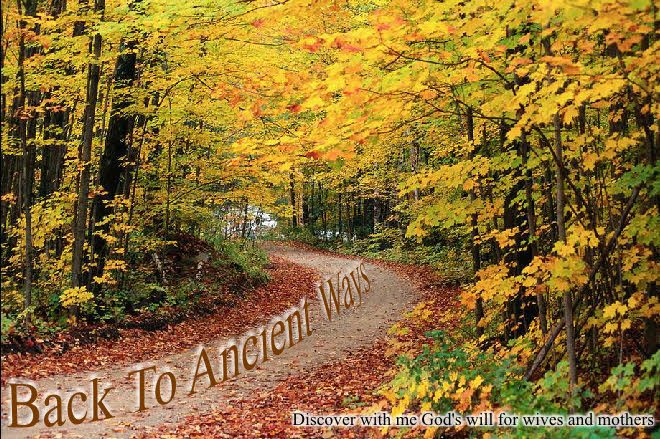Some time ago I received an e-mail asking my opinion on what age is an appropriate age to start reading and writing a second language.
Before I answer the question, It is very important to mention this is my way of homeschooling. Homeschooling is a very personal issue. The ideas I’m sharing here is what works for our family, with our family structure, for our family size, with all the different personality characteristic of our family, our learning style preferences, and my preferences and shortcomings as a teacher.
Take out of this posting what is suitable to you and throw out the rest and if you don’t agree, just let it pass.
My answer, taking in account we are an Afrikaans family and English is our second language, will also most likely differ from English families, whose second language might be Afrikaans or a European or African language.
English is the language of the world. Wherever you turn or go, you need or hear English. My children are exposed to English from the day they are born through electronic entertainment and electronic media! Andrew my 6 year old speaks English with a proper English accent which I can only dream off, since I’m an Afrikaans girl from the Free State, and I grew up before TV was a regular visitor in every home.
All this said and done, I only start English, the second language when my children are at least nine years old, or fully in control of their mother tongue! I remember years ago when CJ, my oldest son the one who had to spearhead life for his siblings to follow, told me about his friend. who at the age of 8 started to learn English, second language, in grade 2. We were still in the process of learning our Afrikaans phonetics and I didn’t give thought to English in my wildest dreams!
In our homeschooling journey I follow the path of Better Late Than Early.
My children, especially the boys, must play while they are little boys. Until they are ten years of age, I don’t expect them to do more than an hour’s work of language and maths.
We will have fun with lapbooks, arts and crafts and read aloud, but formal learning is more or less an hour. We learn reading in our mother tongue, the phonic way and not by sight words.
From our 3 year old to Danika (8) enjoy playing with phonics and Call-out-a-word-starting-with..., look at pictures, name the word and identify the beginning sound, etc.
Only after I’m convinced my nine/ten year old has a solid foundation of the phonics of his/her mother tongue, able to read easy reading books fluently,
and without hesitation can write in his/her first language, will I introduce the phonics of a second language, for us, English. That might mean my child is already in ‘grade 4’! I use Adventures in Phonics by Florence M. Lindstrom Level A and Level B books. The simple way it introduced phonics to my children made reading and spelling in the second language a piece of cake, without frustration and keeps learning fun!
By the time they are finished with Level B they can almost fluently read English and are ready for LLATL Red, the curriculum we use for English. Since my children only start the second language at the age of nine/ten, LLATL blue is far to childish for them and I’ve experienced it doesn’t concentrate so much on phonics, since it is written for the first language. But after they’ve mastered Level A and B of Adventures in Phonics, they are ready for the second LLATL book and the books that follow.
The most interesting of starting with the second language later, is how fast they master the language, with very little effort! I was still busy teaching Josua my almost 11 year old the English phonics 18 months ago, when Christo mentioned to me, that he was already reading the Tintin books all by himself. I didn’t notice! Now 18 months later he is correcting his Mother’s pronunciation, when we are reading out loud in English! LOL!
Since they master the second language so quickly, though starting at a later age is not a problem, it is easy for them to catch up when thinking in terms of grades.
I guess part of the swift way my children learn English as their second language is because all our Homeschool resources are English. We do Maths-U-See, not available in Afrikaans, but in my opinion the best maths program for my visual learning children. I know it is of uttermost importance that children learn maths in their mother tongue, so I translate all the DVD teachings and translate all the maths problems into Afrikaans until at least the 11th or 12th year. But, when Mother has a very busy day and doesn’t have time to translate the maths problems, they cannot proceed with their maths. This is enough of a motivation to master the English Language. The same is true for their Science.
At the age of ten, we will start with the Young Explorer Series (Creation based Science) and we just started a Footprints of South Africa e-book (for History and Geography), all in English. In the busy home we have with many little children, all demanding Mother’s attention, the older children just have to master their second Language to satisfy their hunger for information! Then there is the internet and Science magazines too. If they are not able to read and understand English, they miss out big time!
I guess the secret is motivation. And though I’ve been frustrated with English being our second language, having the implication of me having to translate everything the first 10 years, especially lapbooks for the little ones, I guess it is a blessing in disguise, forcing my children to be bilingual at a very young age!
My word of advice for families learning a second language? After the basics of a second language has been taught, find a very interesting resource in that language, then try to stay a little in the background and force them to figure it out on their own. But most important, don’t start to young with the phonics!
With love
Linnie






















3 comments:
Thanks for this. It's very helpful and always interesting to get a look inside another homeschool home. I'll have to bookmark for later. My oldest is just 7 and I also do 'better late than early' for academics.
Hi Linnie! Thanks so much for this post. We are still a few years away from starting formal schooling, but as you know we are a fully bilingual family. I really struggle to find resources about homeschooling in two languages, and have been scratching my head about how on earth to proceed. I also lean towards doing the social sciences in English and teaching maths and reading in Afrikaans.
Although our little ones are still very young, I feel the need to start formulating a plan, so we know in which way we are heading. Thanks so much for sharing this information - it's been very helpful!
Xxx
G
Linnie dit is hoe ek dit ook sien, dit is vir my ook die beste om te wag totdat hulle moedertaal deel is van hulle.
Post a Comment